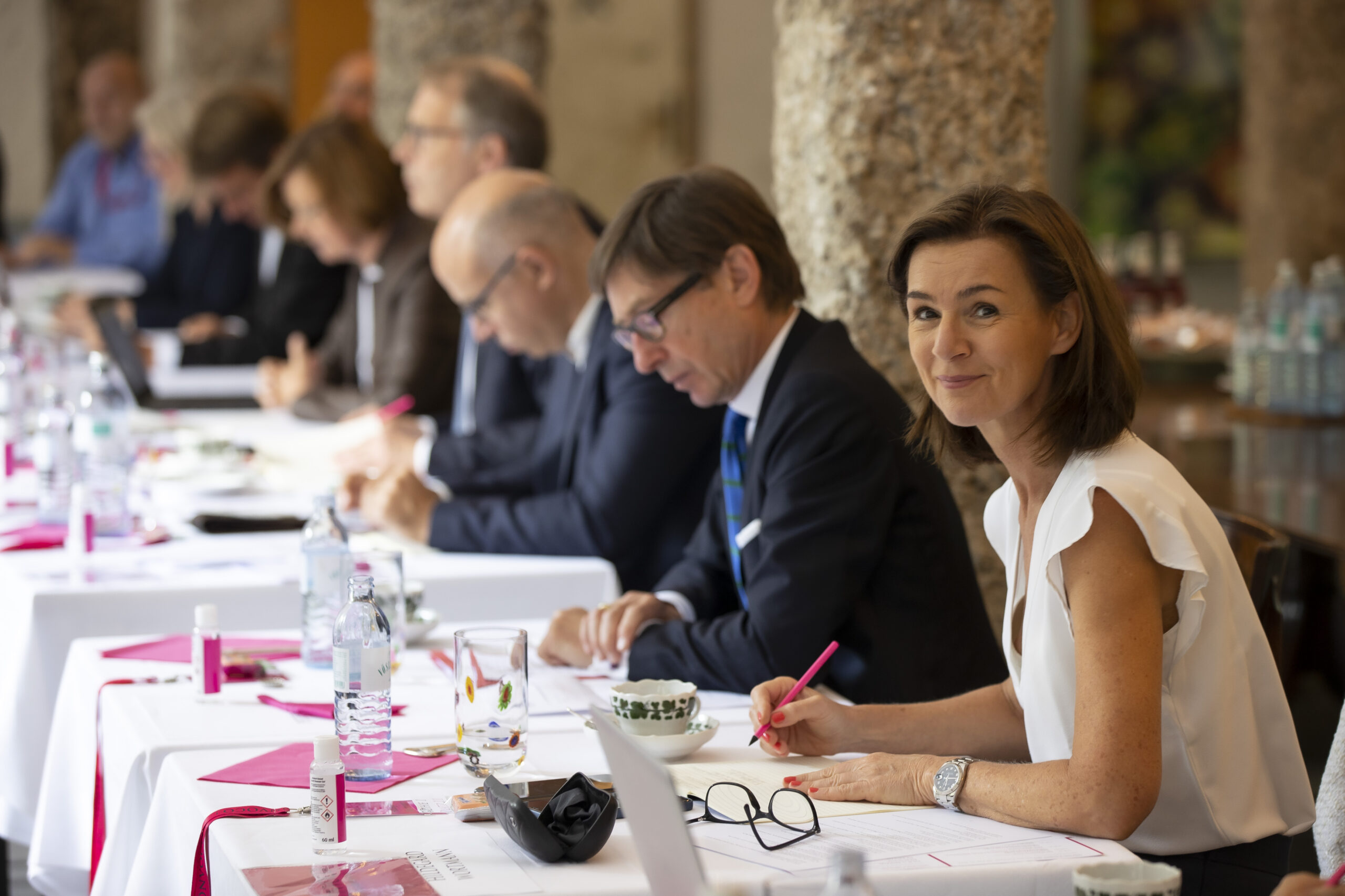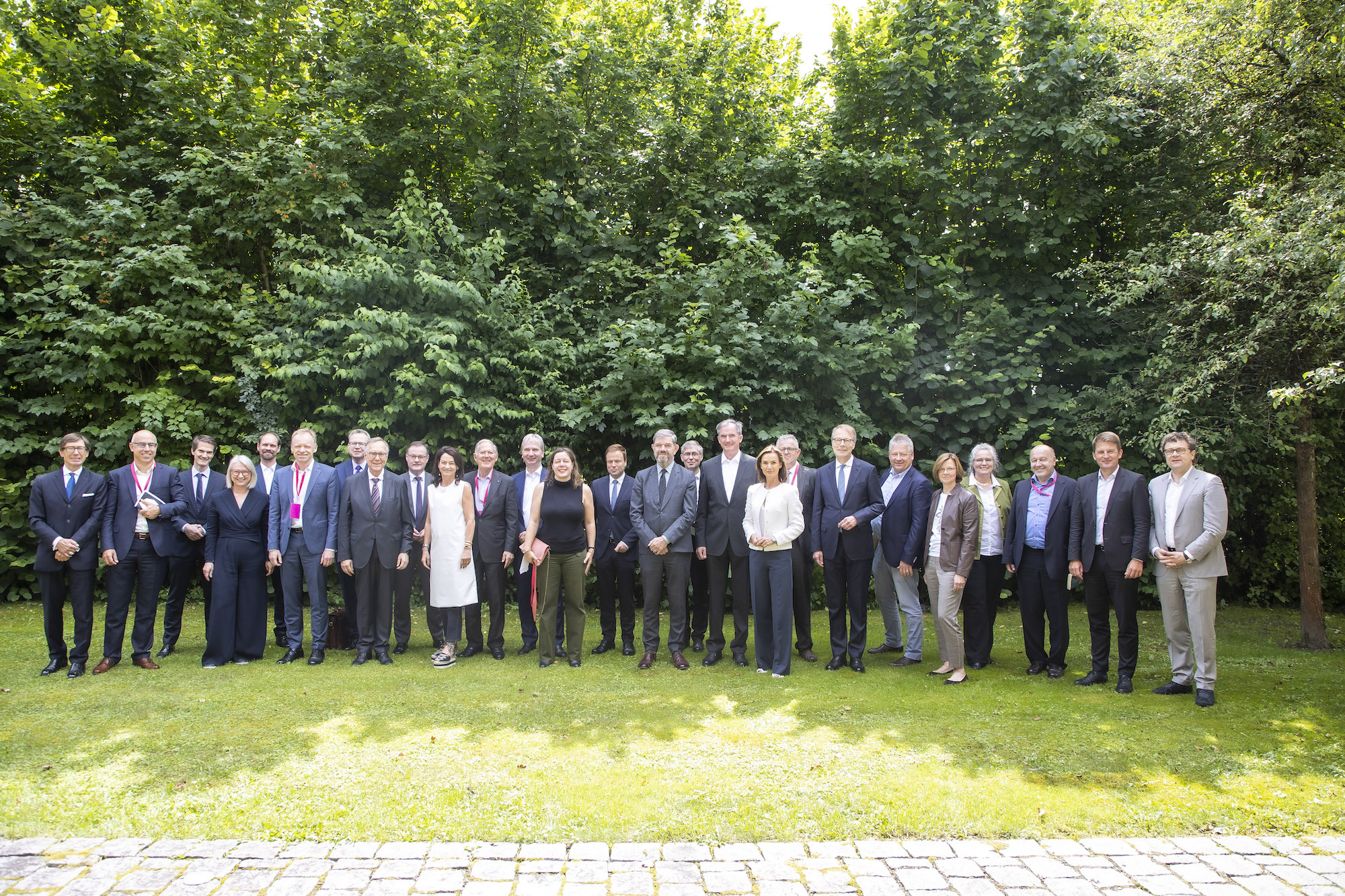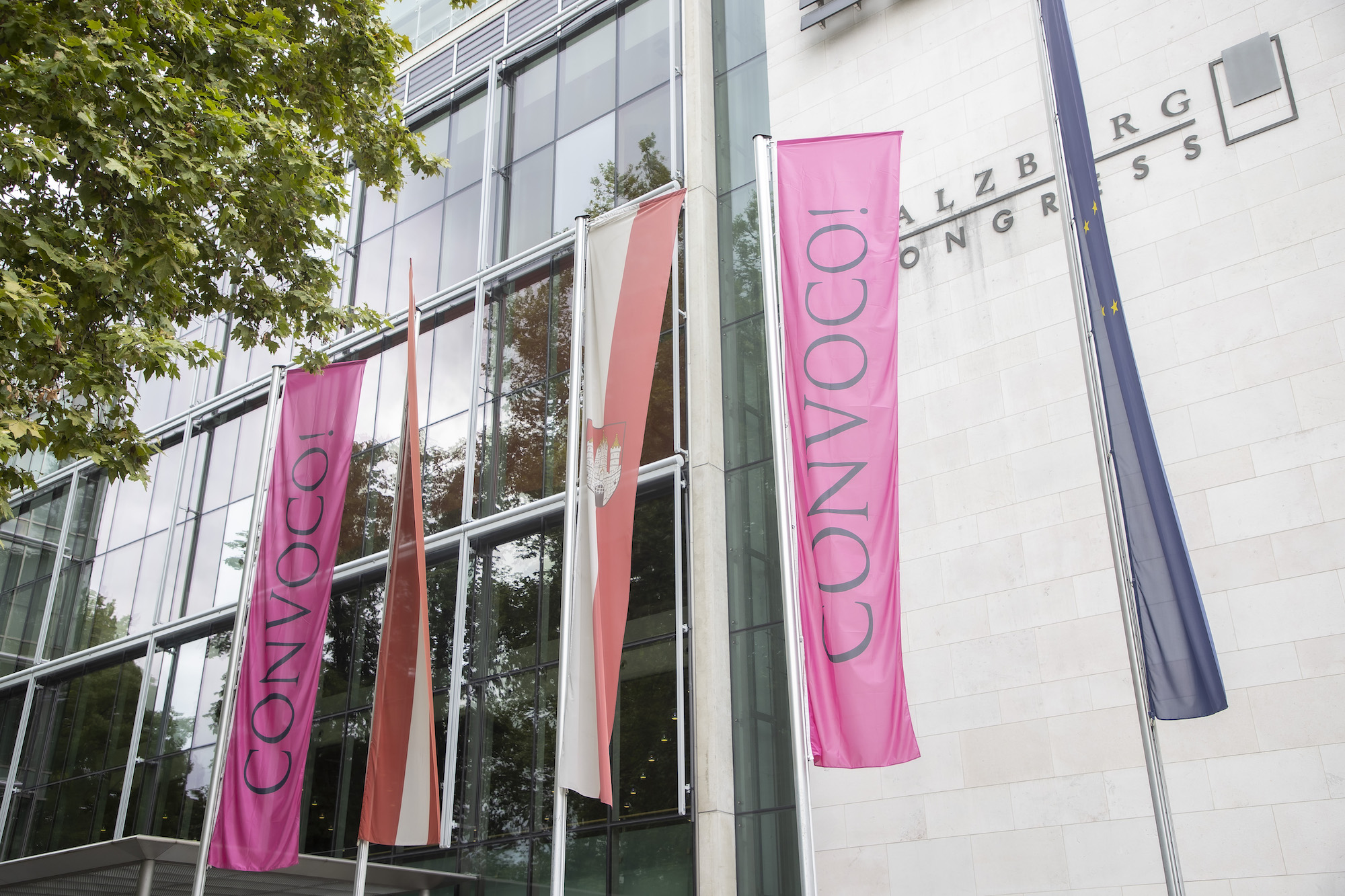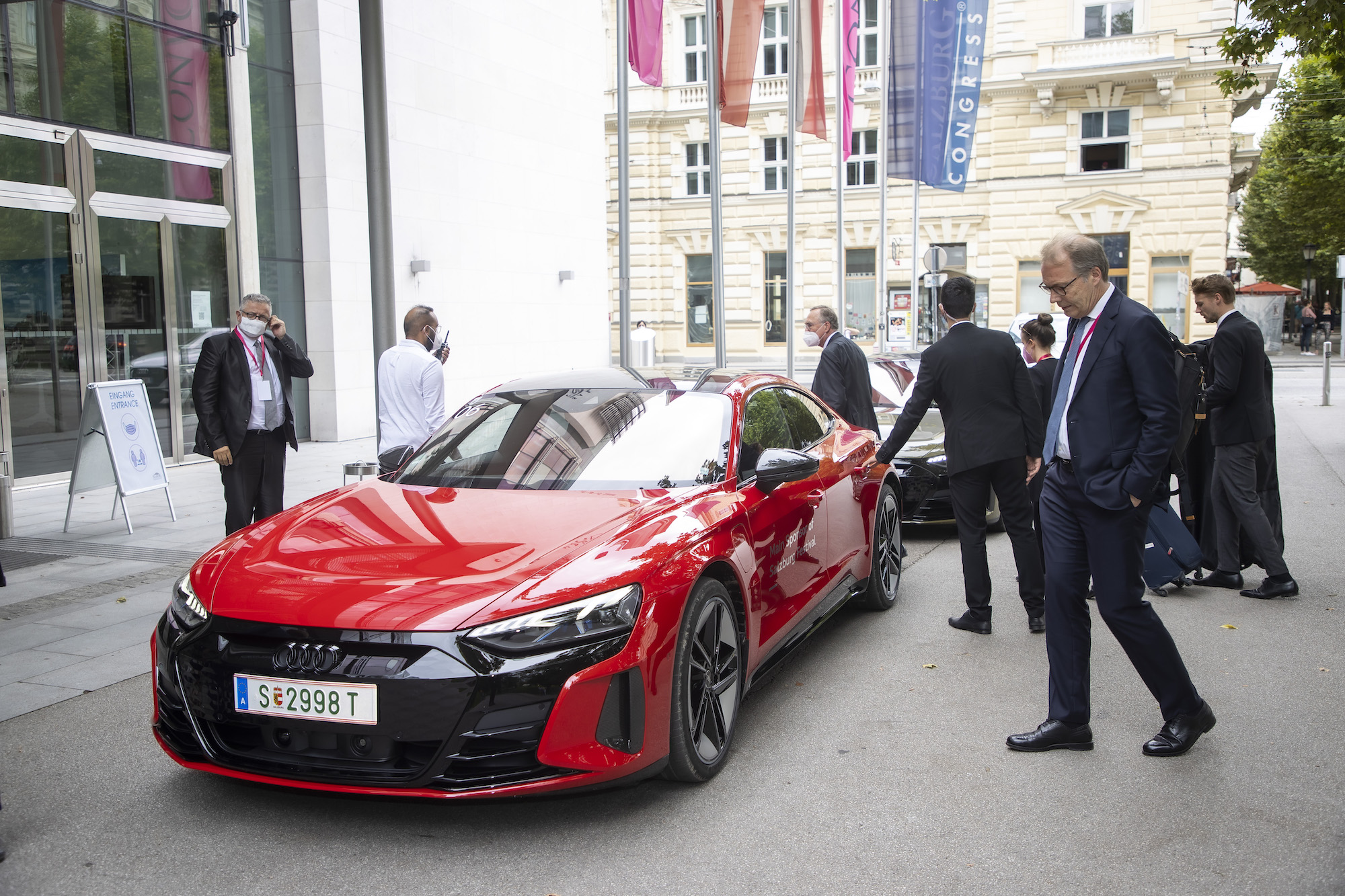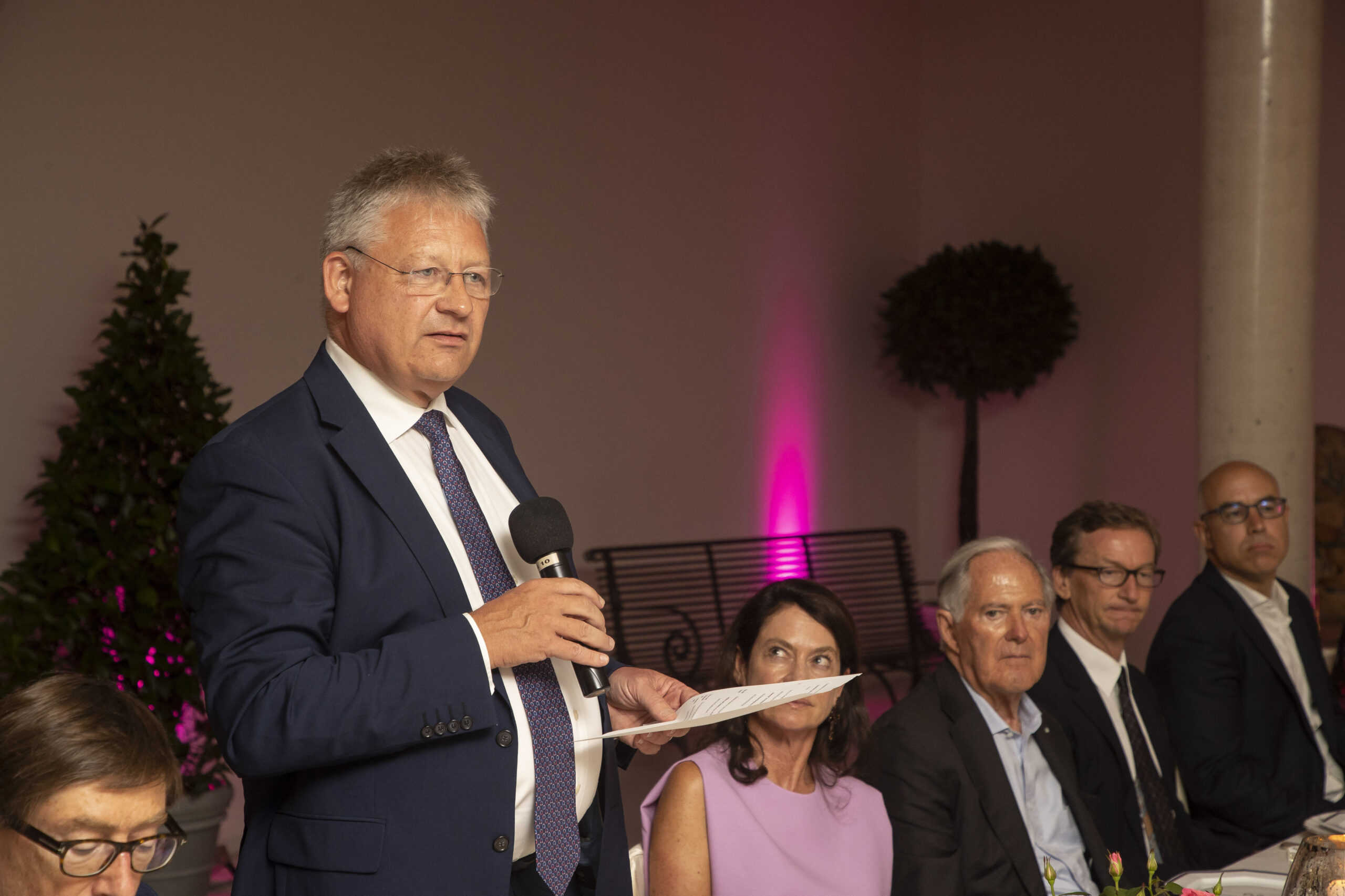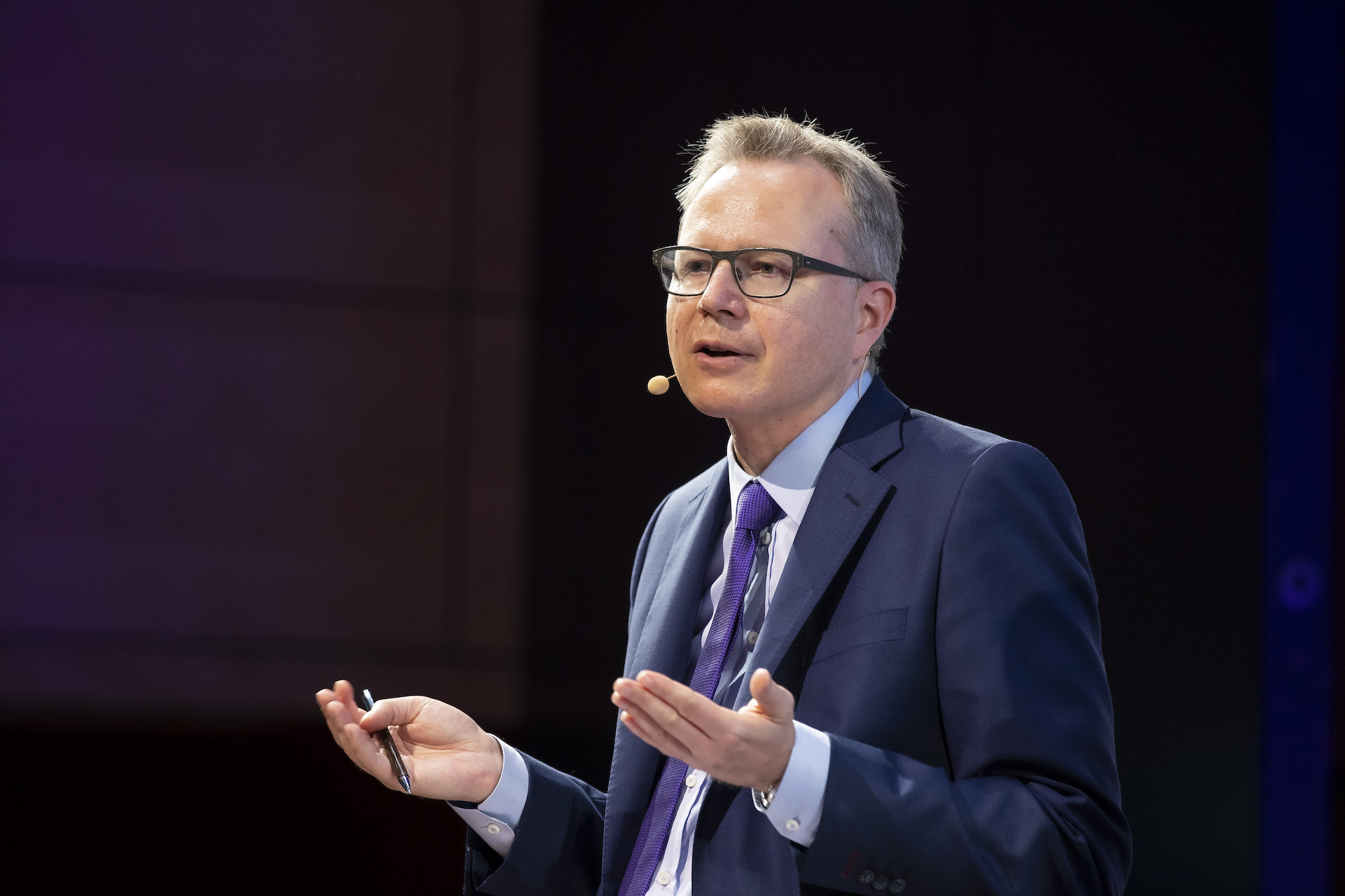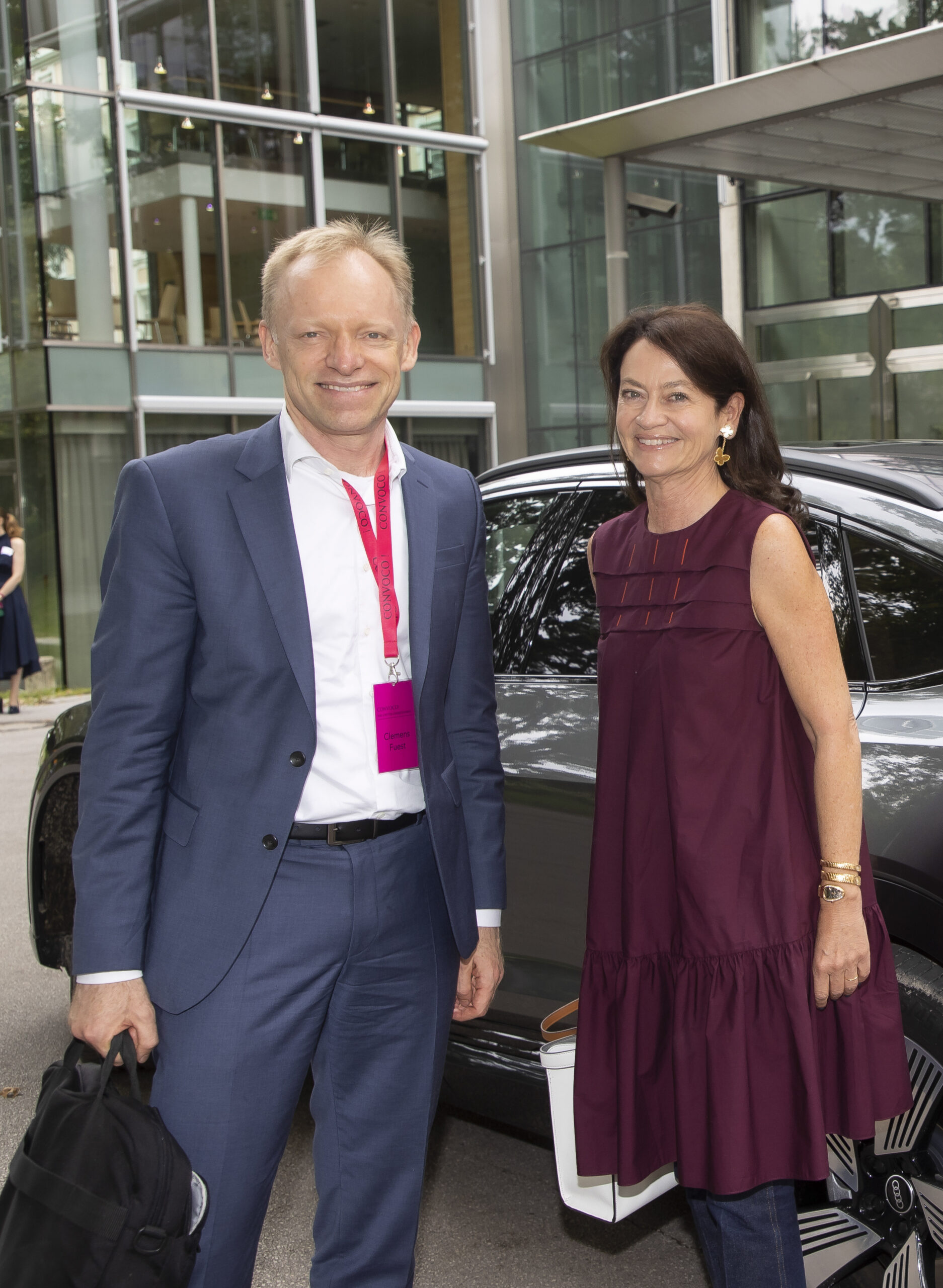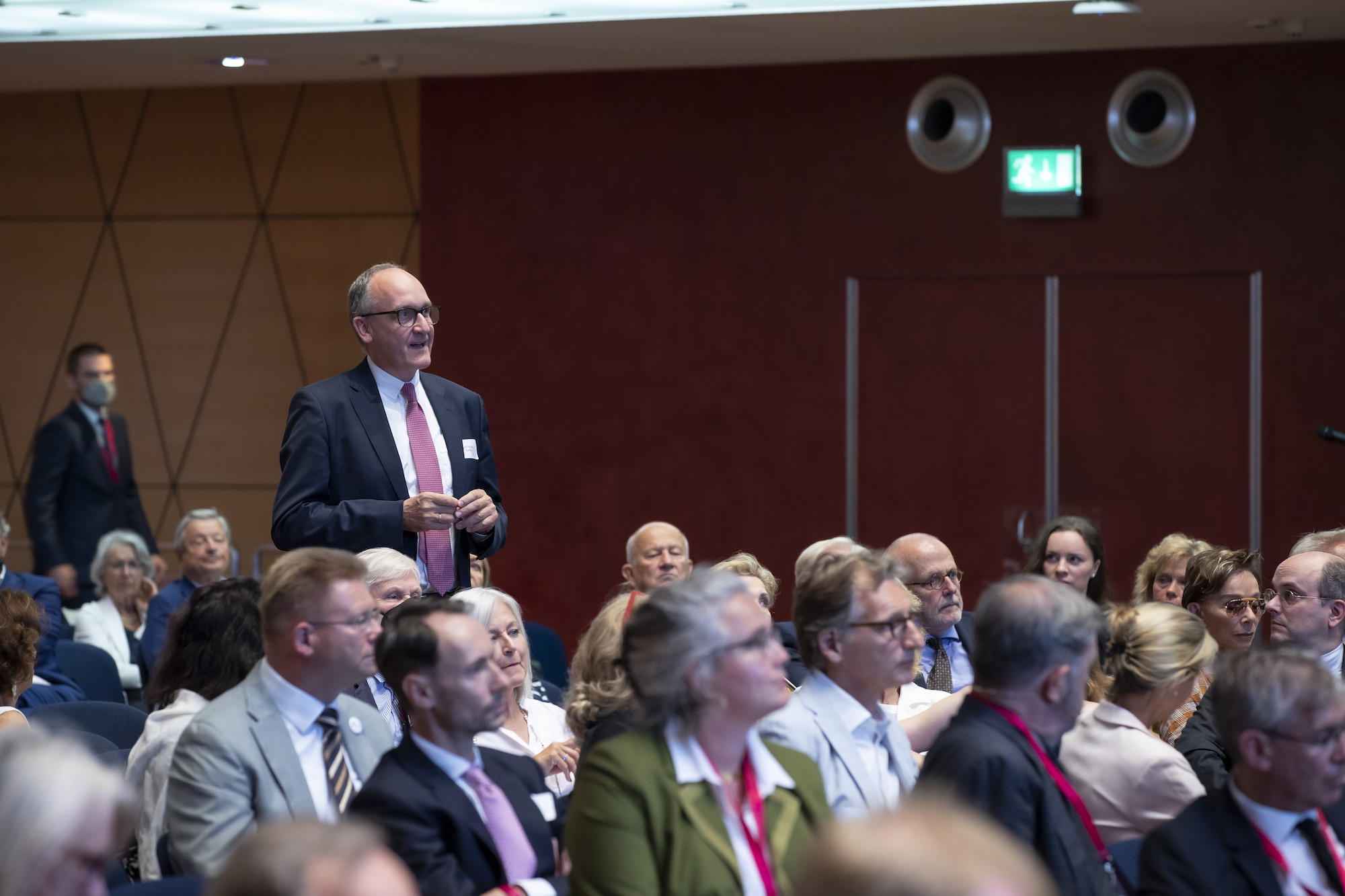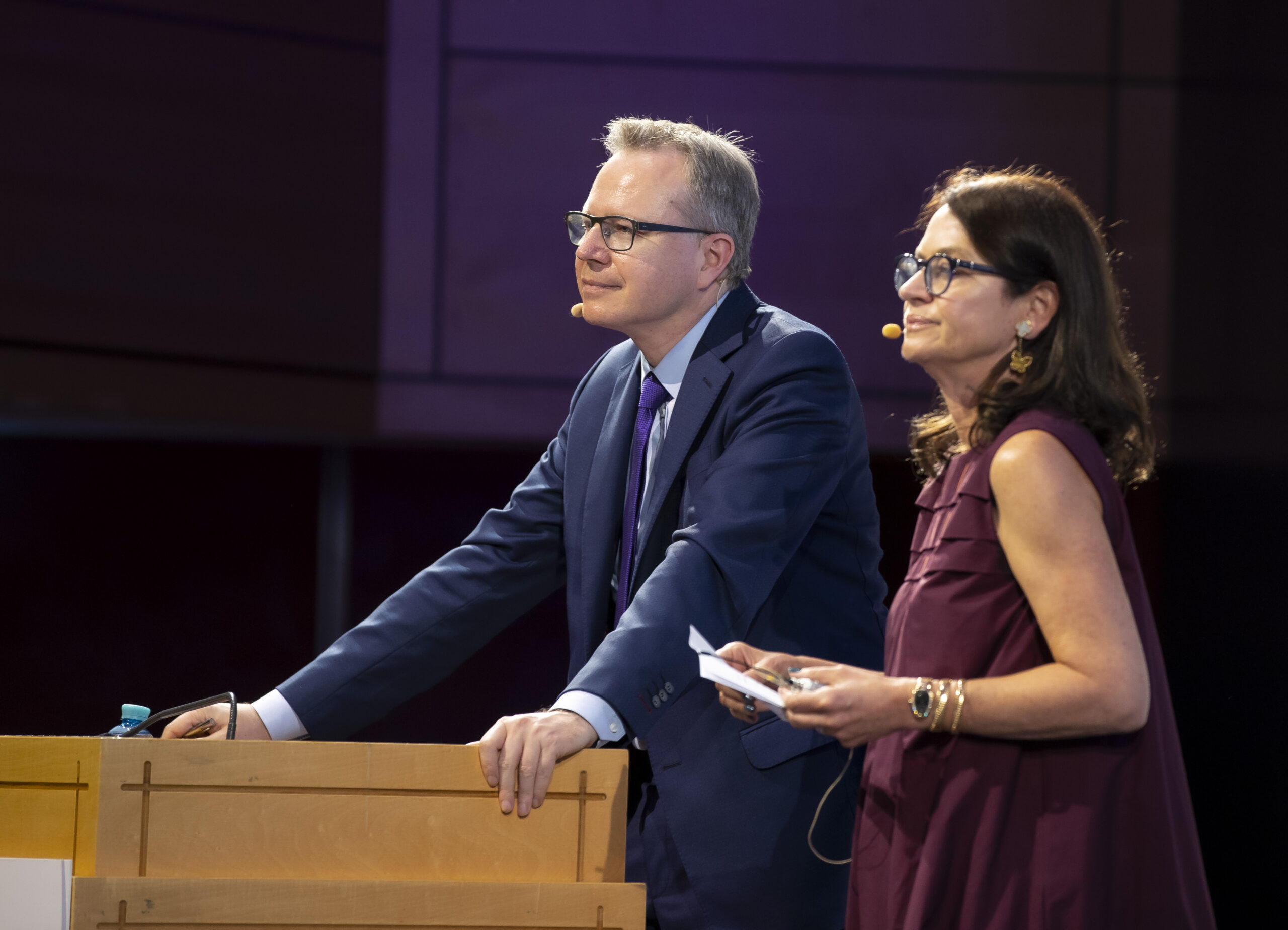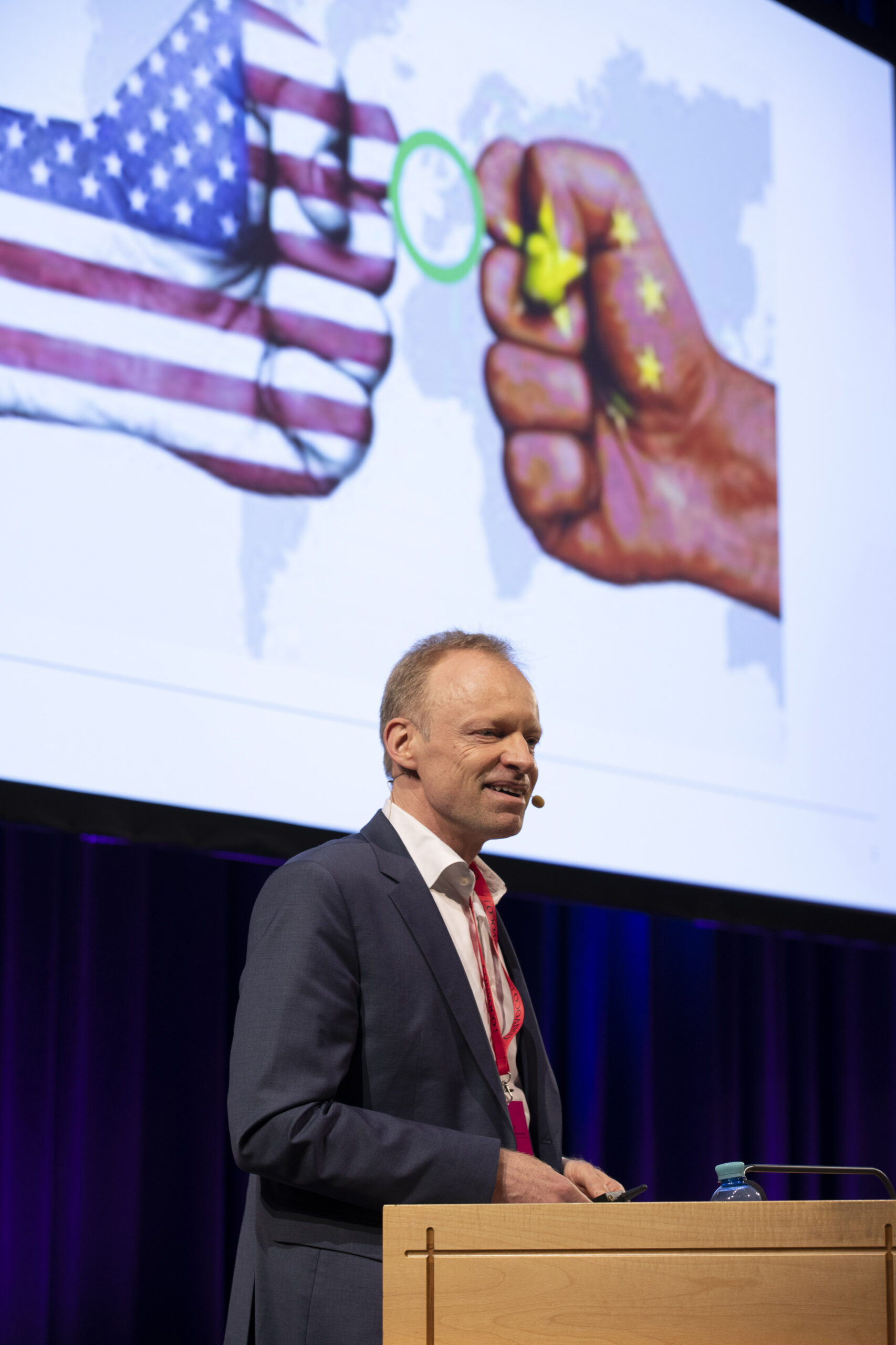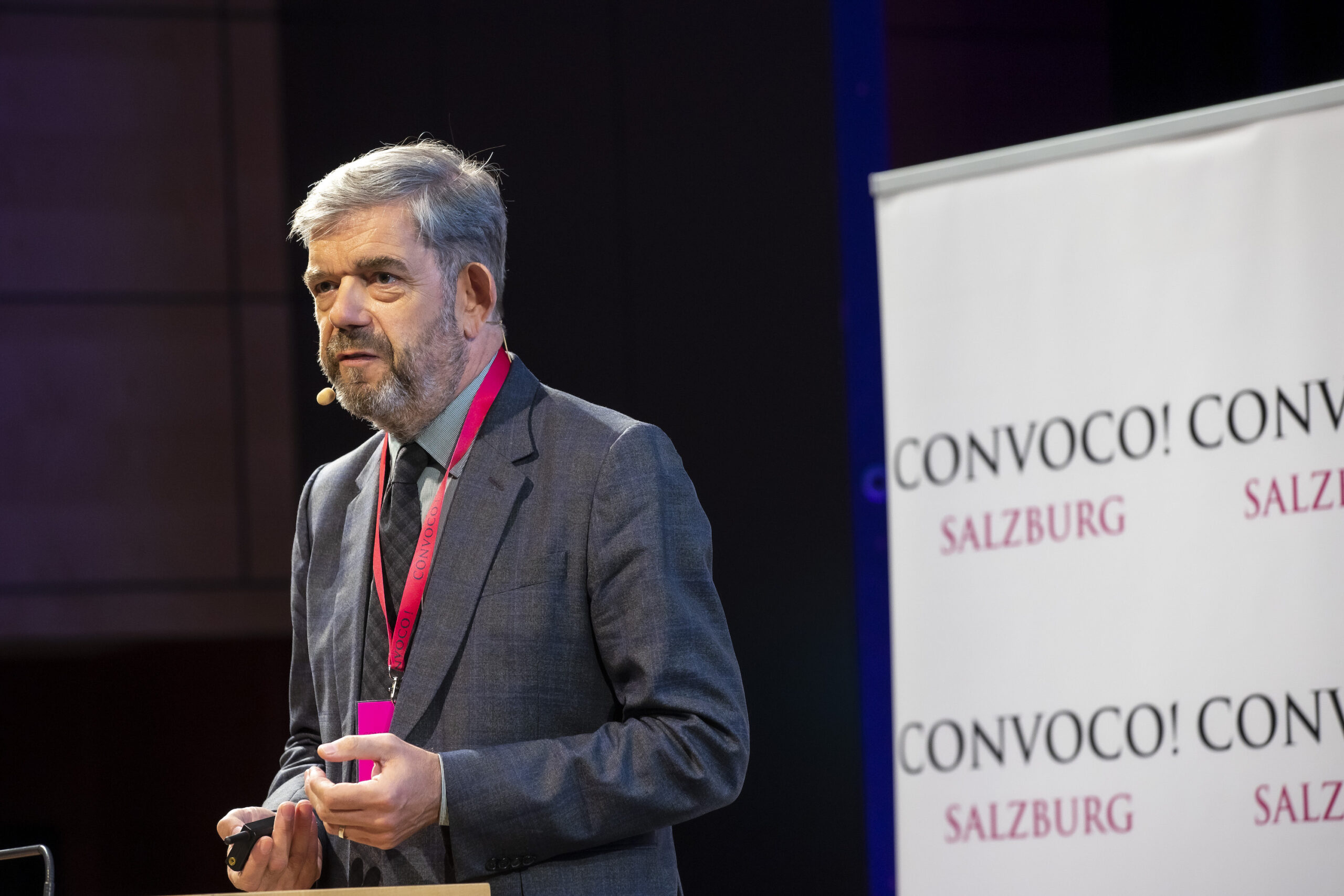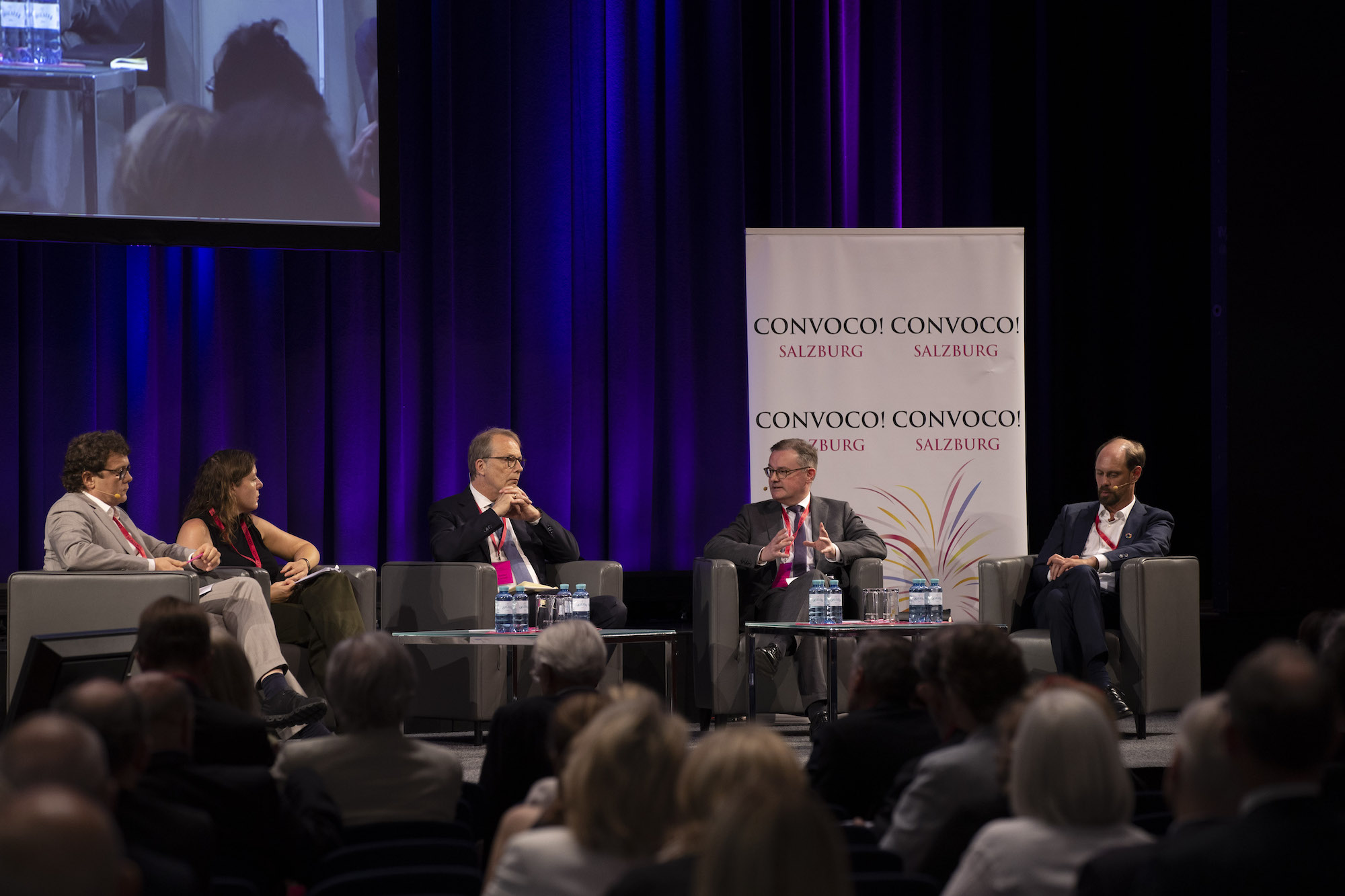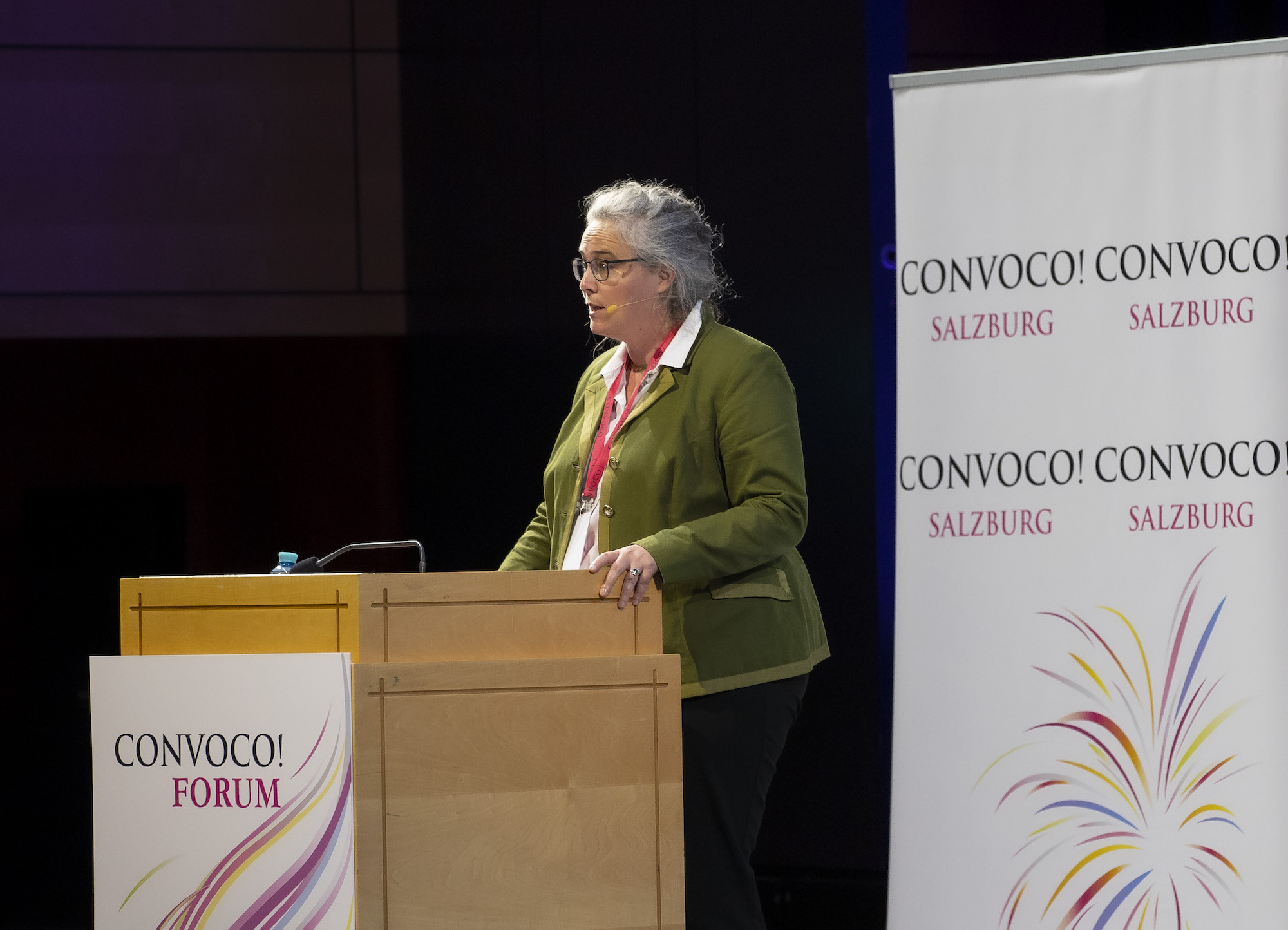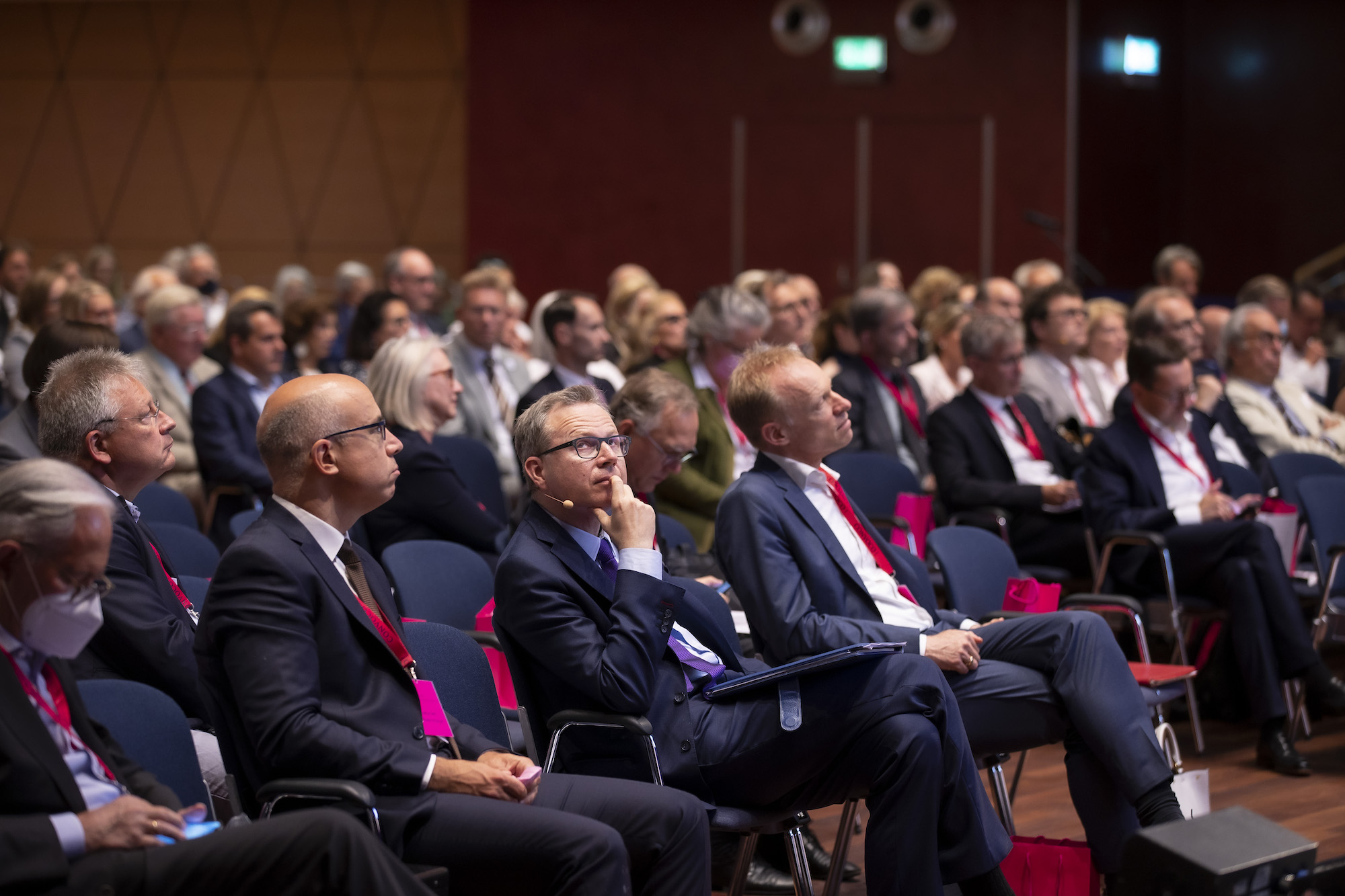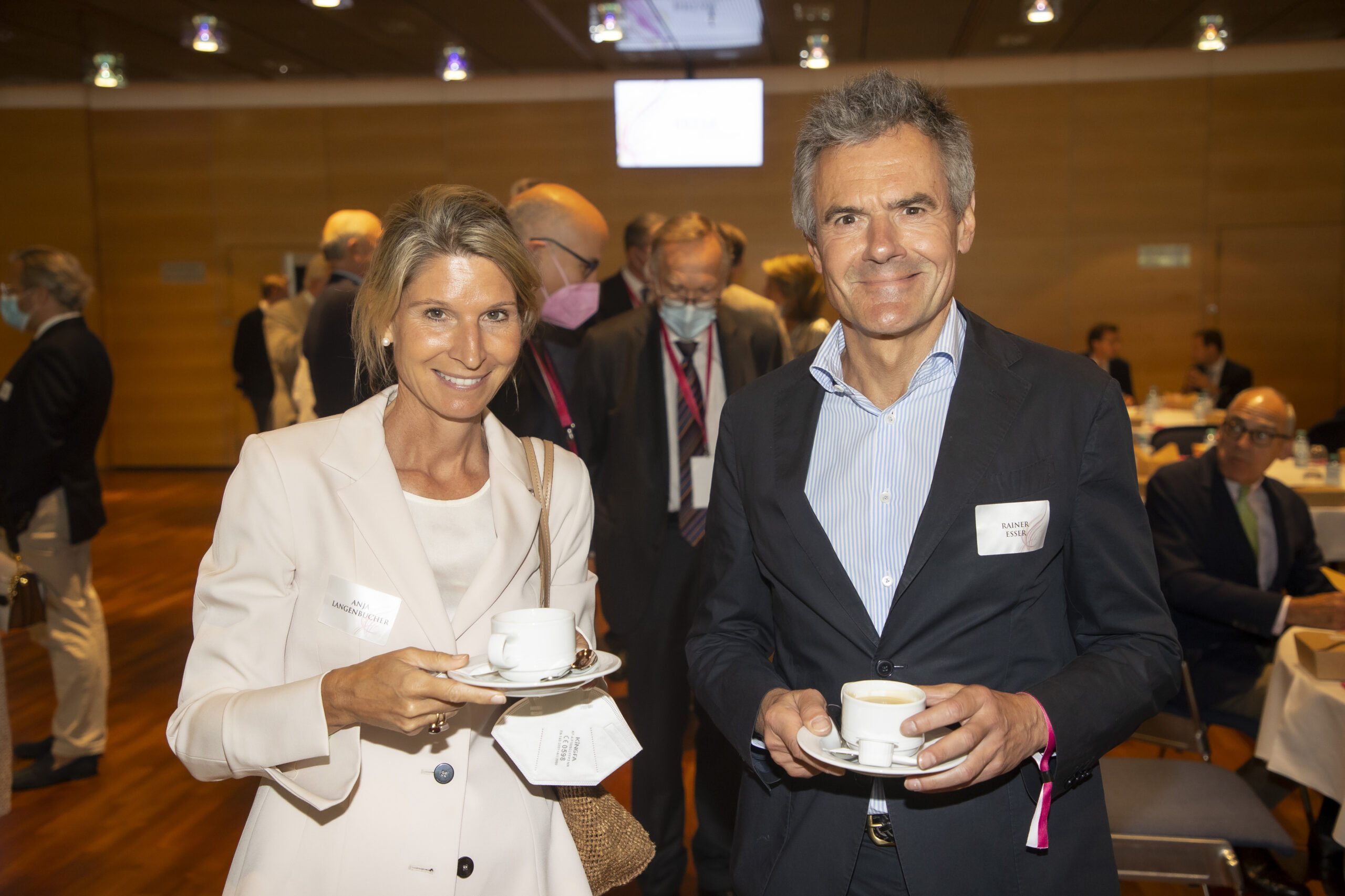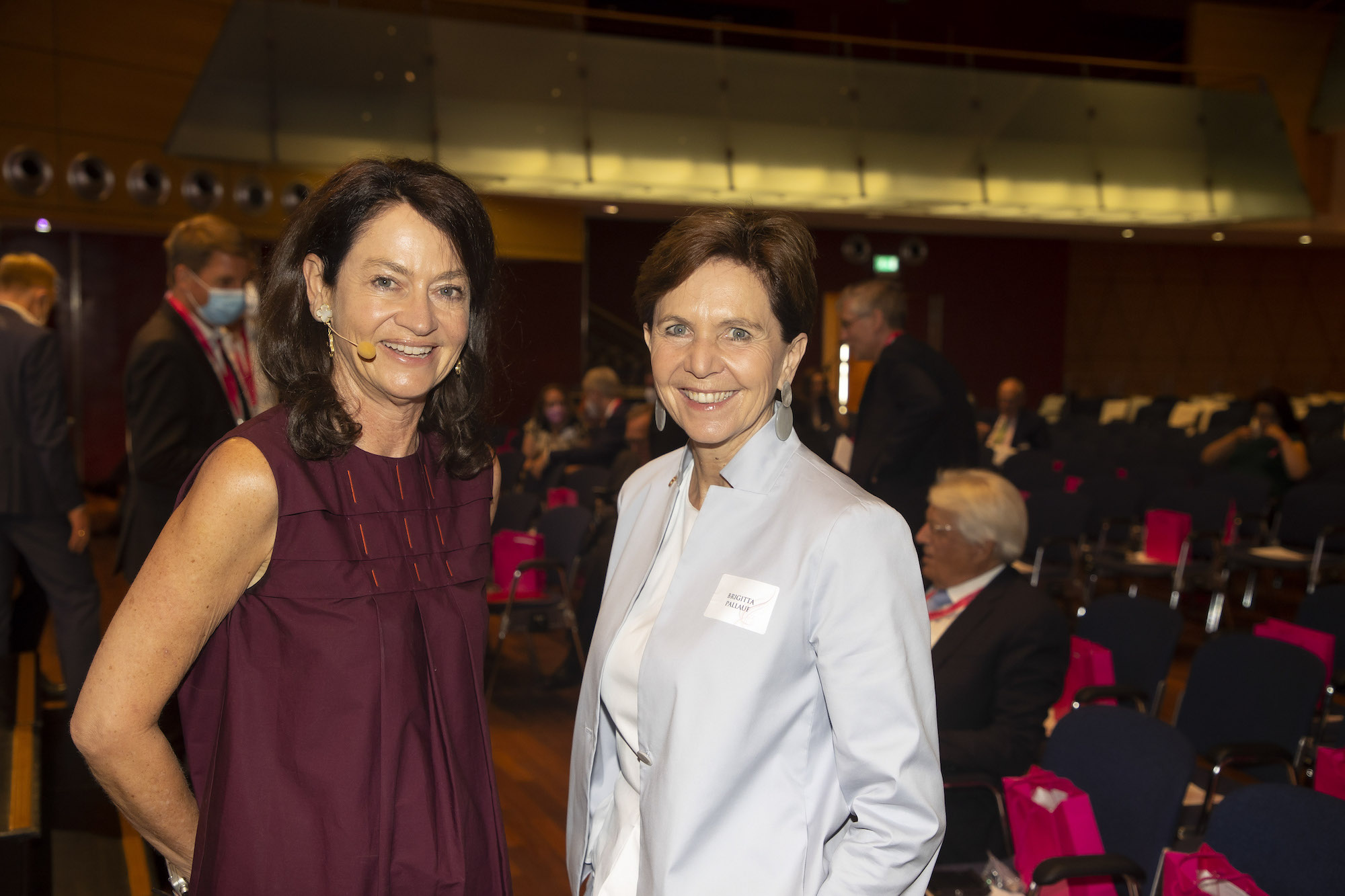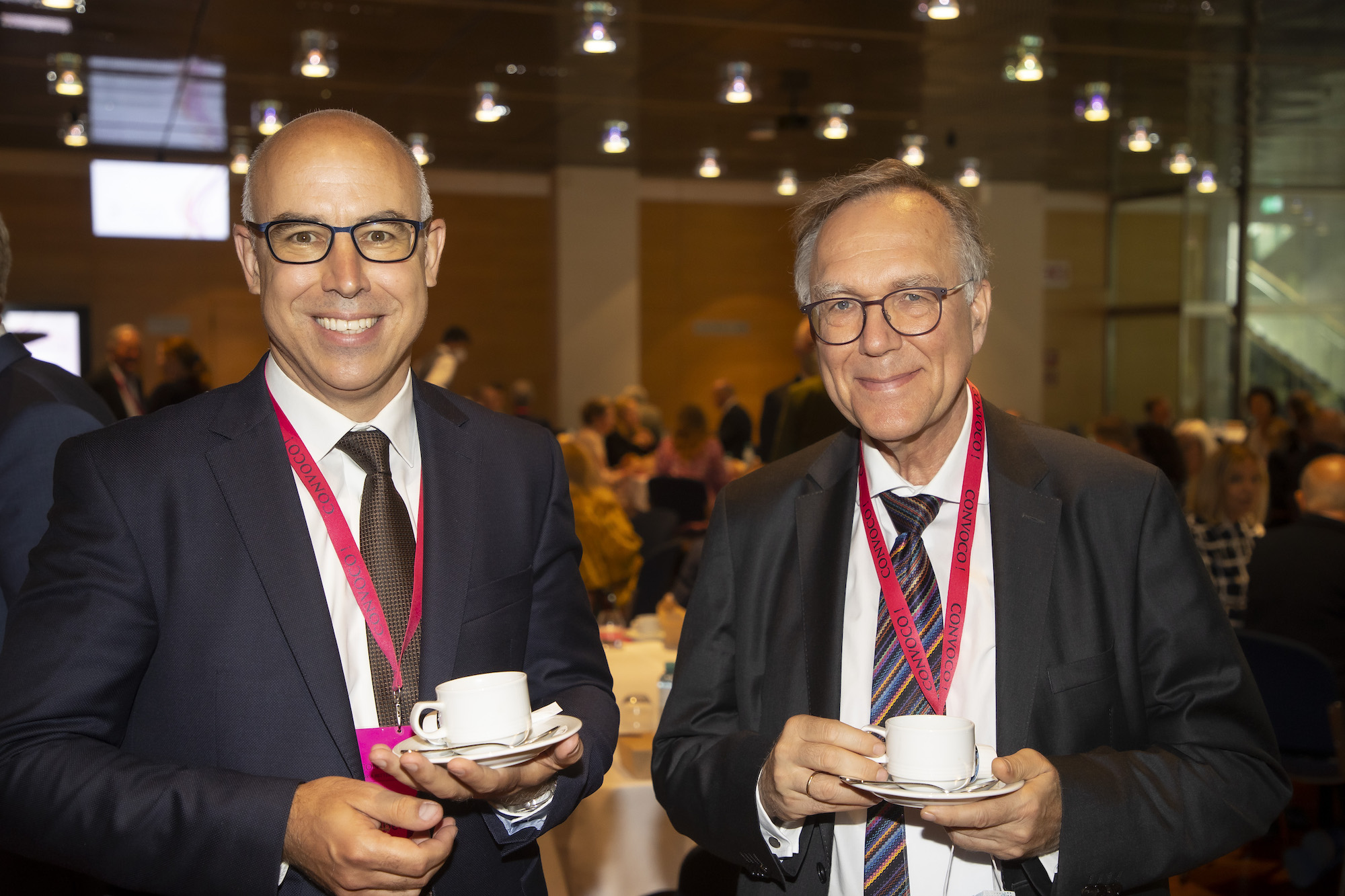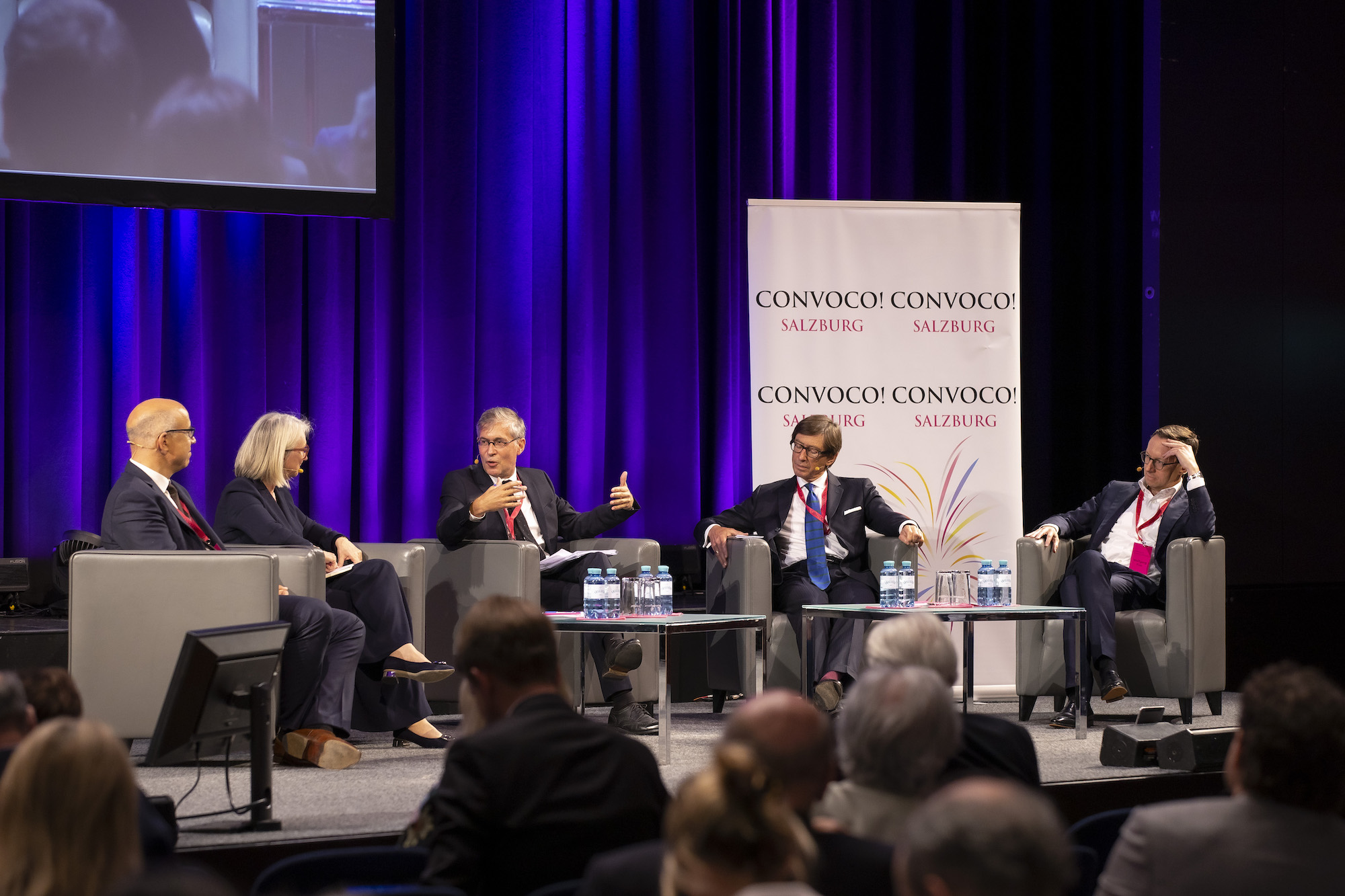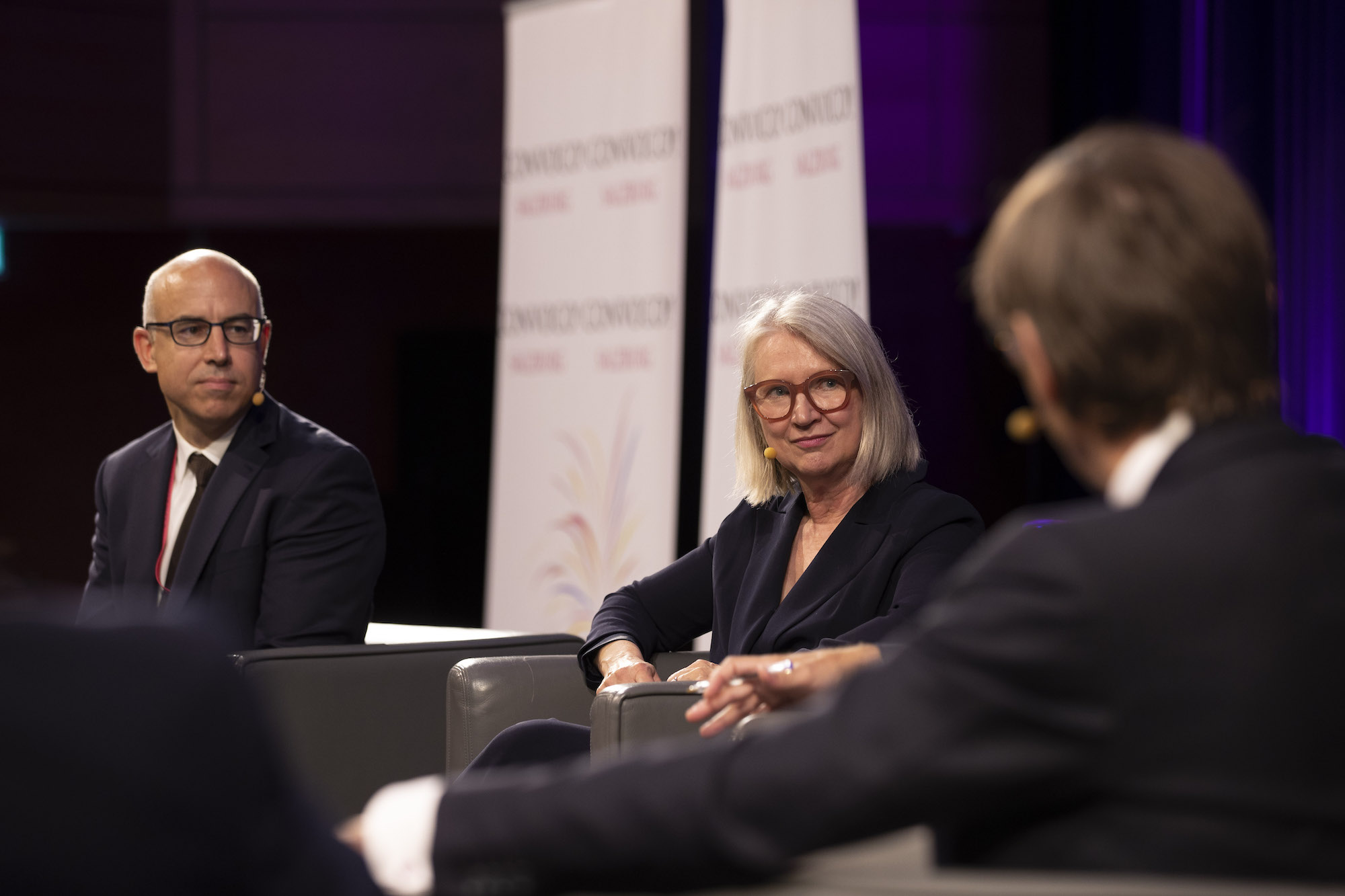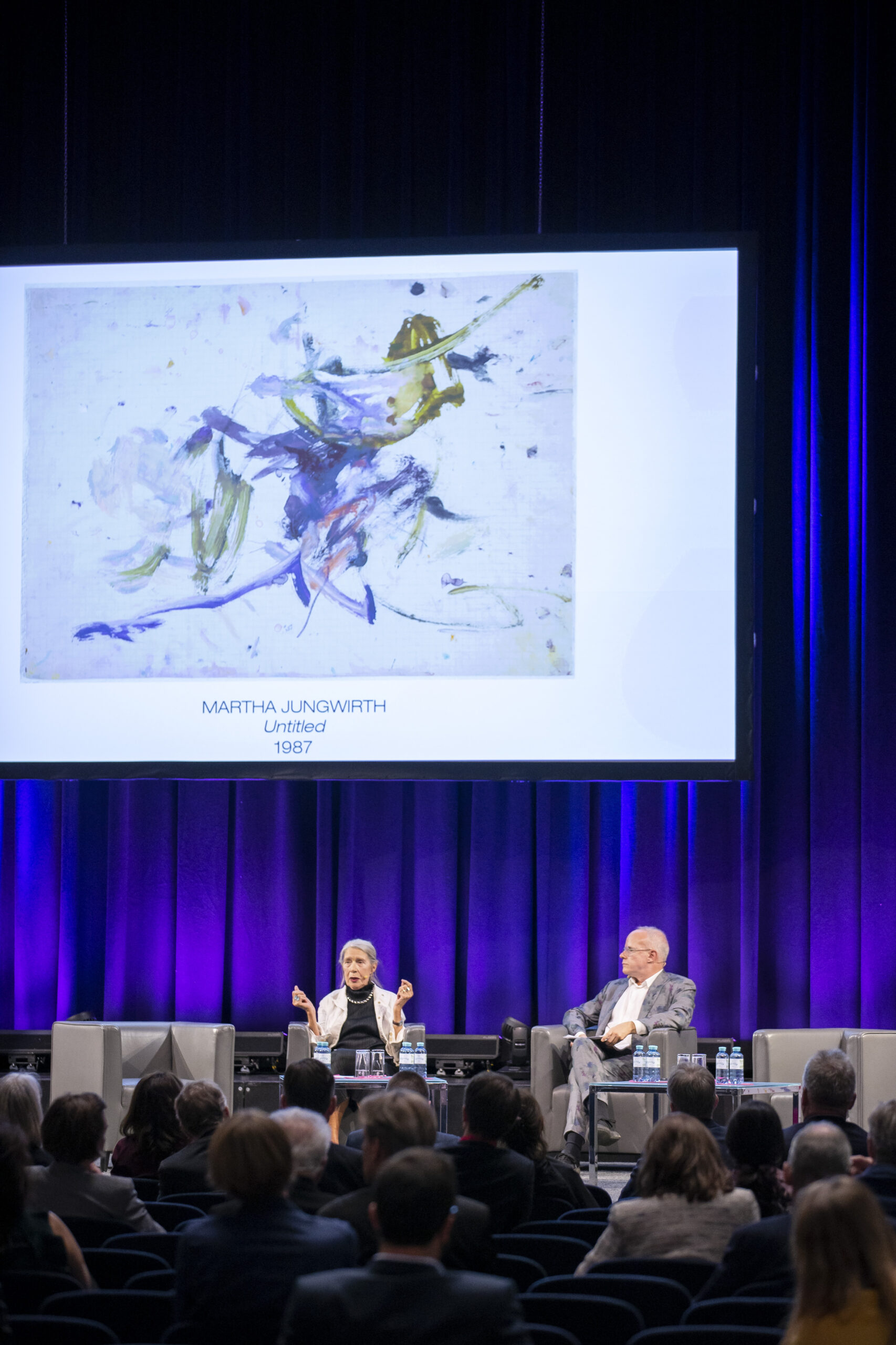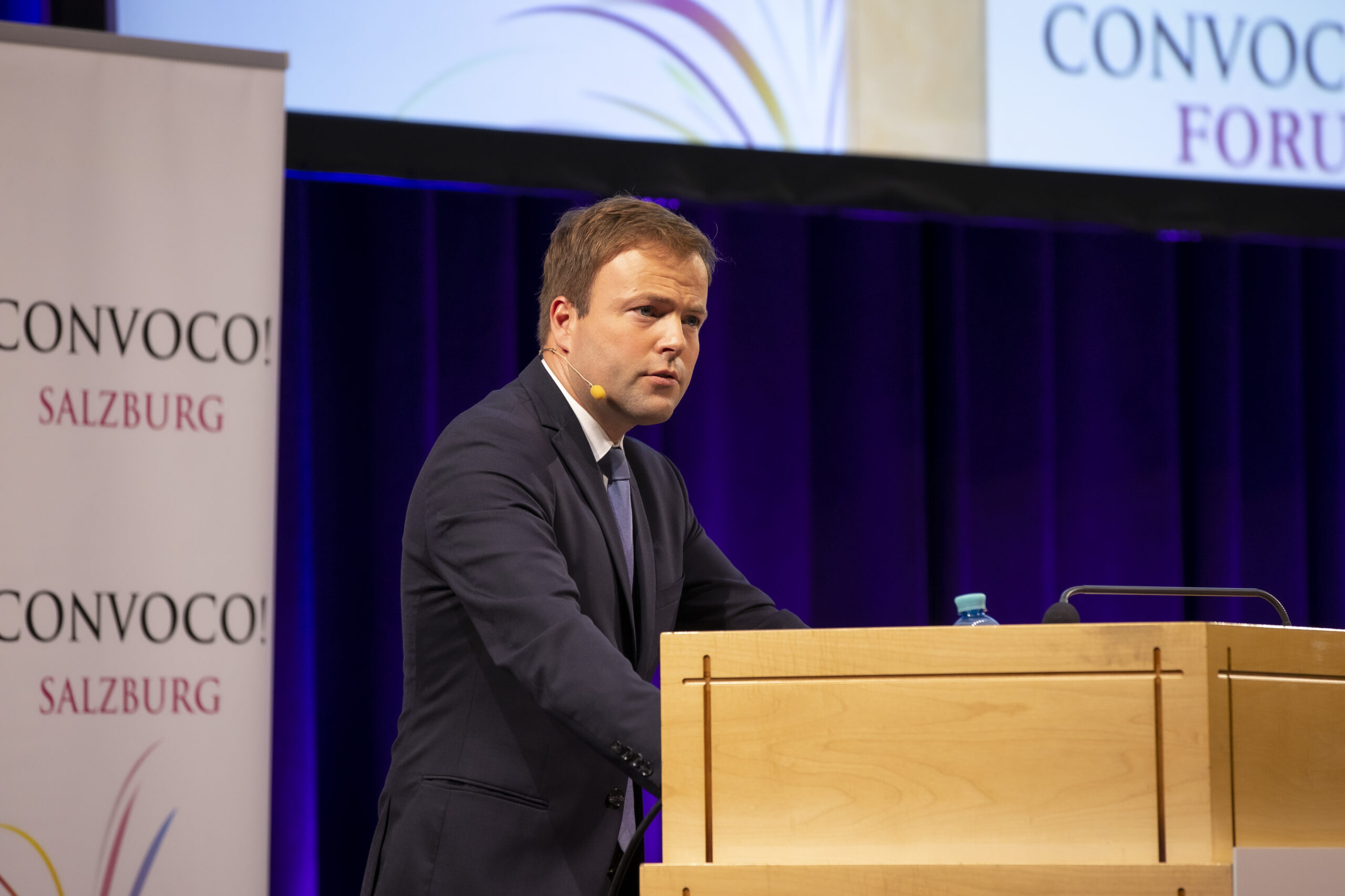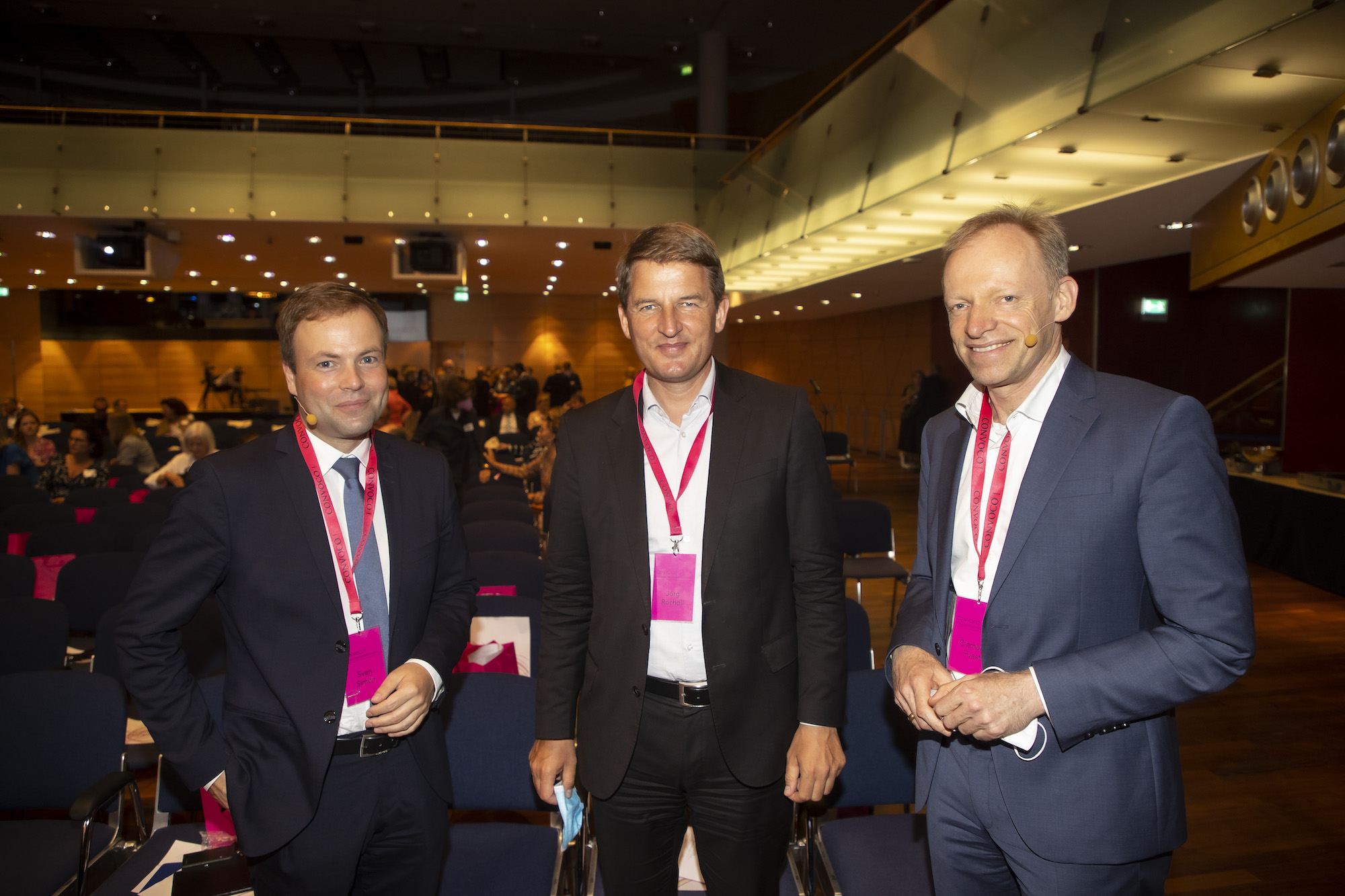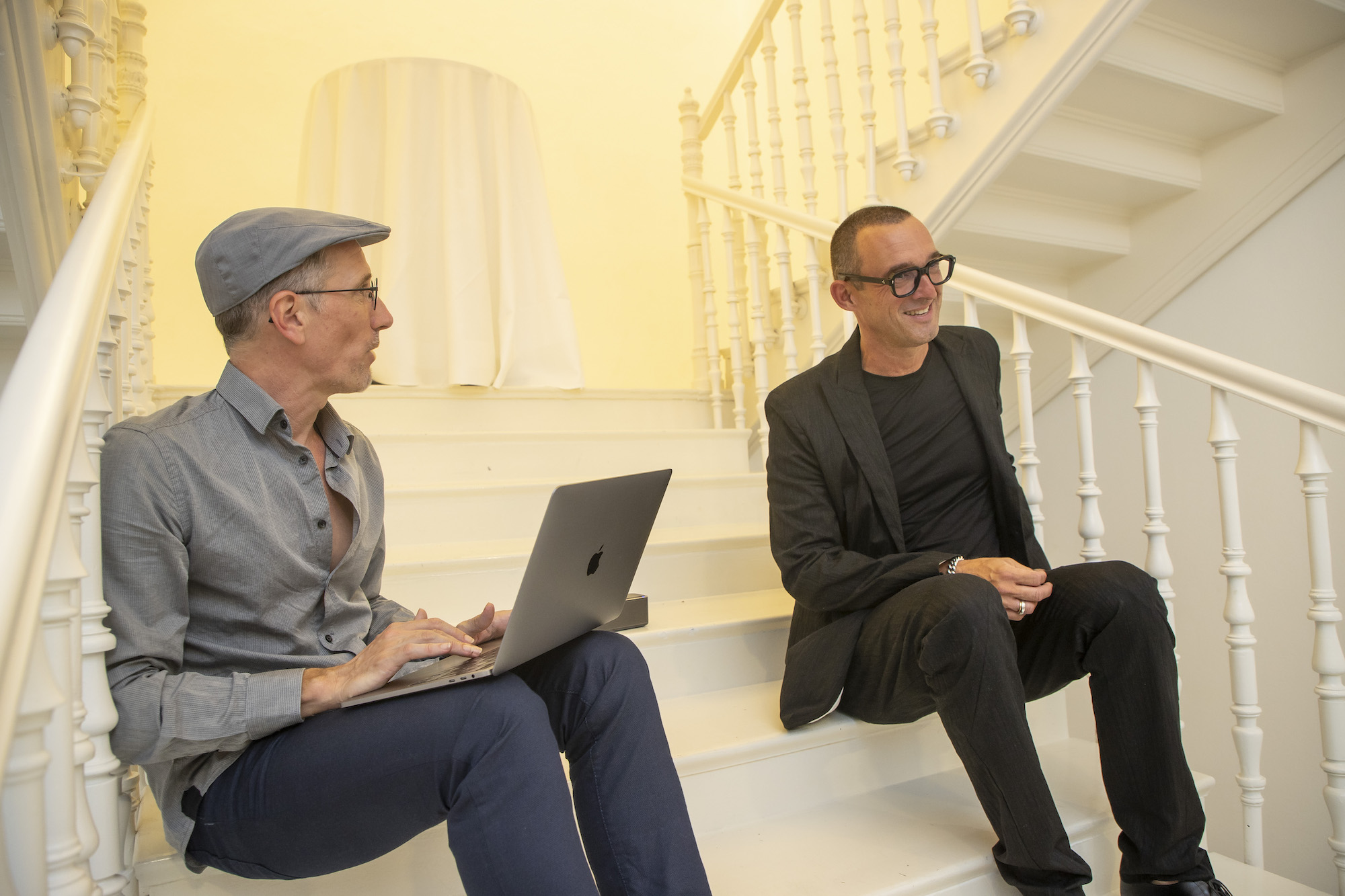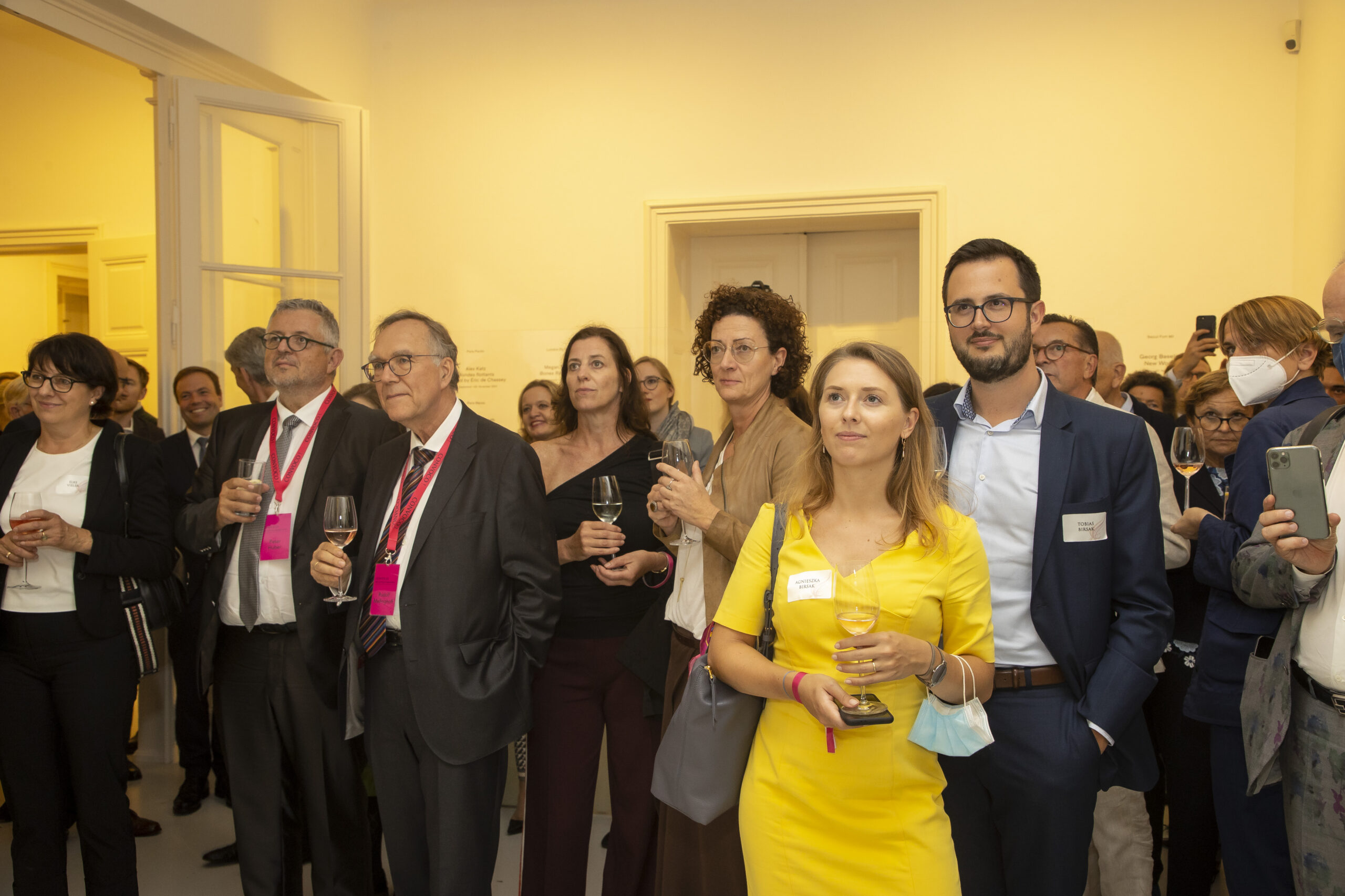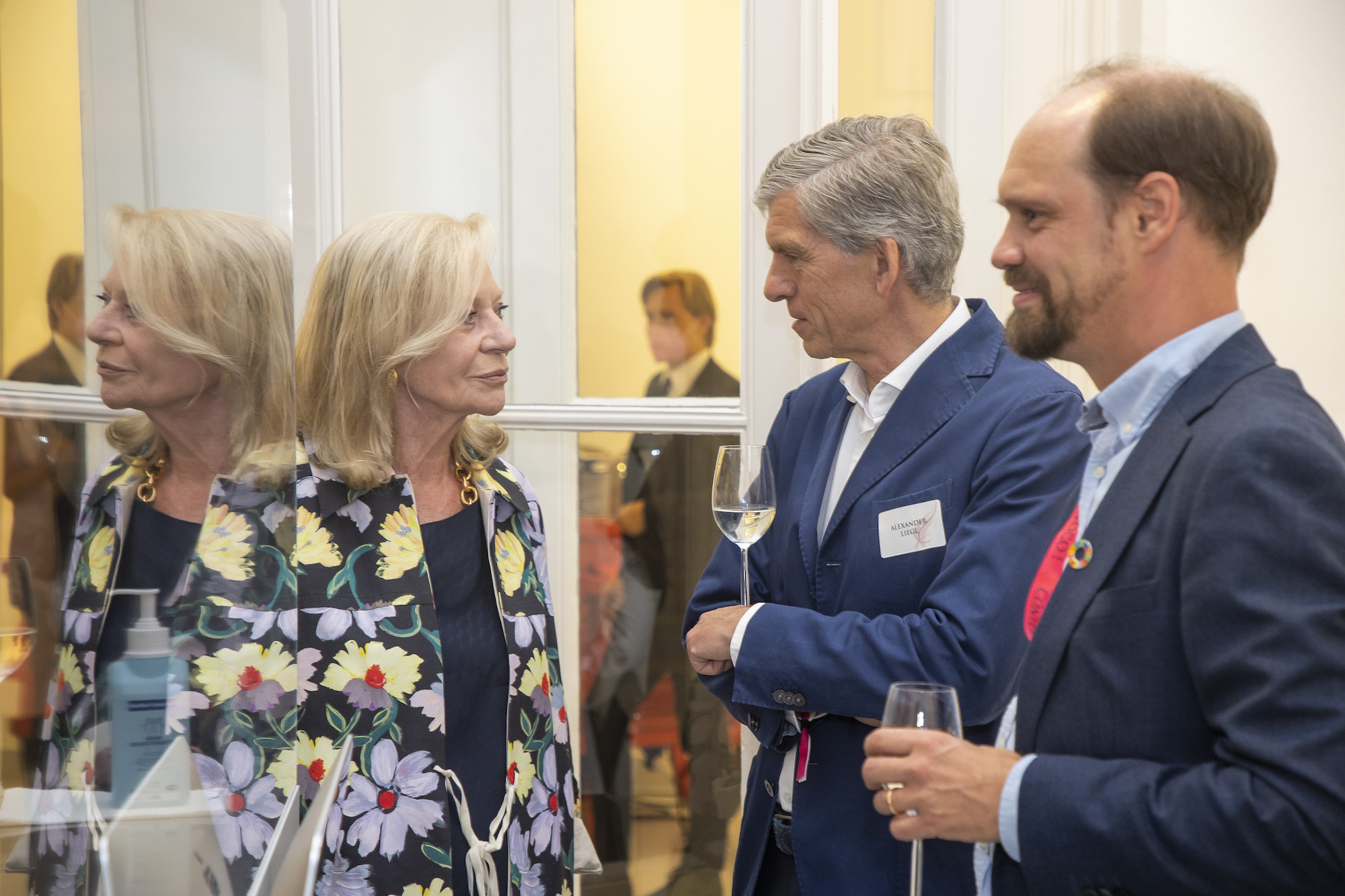CONVOCO! Forum 2021 en
CONVOCO! FORUM 2021
On Saturday, July 31, the CONVOCO! Forum 2021 gathered around 200 guests from politics, business and culture at Salzburg Congress under the headline “How much freedom must we forgo to be free?”.
Convoco! Founder and Chair Dr. Corinne Flick opened the Convoco! Forum 2021 with her introduction to the topic. Her speech focused on the tension between freedom and other values such as justice and equality. According to Corinne Flick, we are seeing an increase in individual freedom. But every gain in freedom also requires an expansion of mutual recognition and consideration. Today, this no longer only applies to the interaction between people, but also to the relationship between people and non-human life.
In his lecture “Freedom and Coercion in the Late-Modern Culture of Self-Realization“, Andreas Reckwitz illuminated the late-modern subject, especially in the 21st century, and showed how modernity imposes unfreedoms on the individual. He problematized the culture of self-realization with its increased demands of happiness as sensitizing the individual to negative unavailabilities.
The first panel discussion of the day was held under the title “Individual and social dimensions of freedom”. Prof. Birke Häcker provided an introductory talk to the topic. A look at the United Kingdom illustrated different understandings of freedom and considered various trade-offs between individual and collective freedom.
Prof. Jörn Leonhard, Prof. Claudia Wiesner, Prof. Timo Meynhardt, and Prof. Philipp Pattberg continued to discuss the topic on the panel hosted by Prof. Stefan Korioth. In particular, the interplay between freedom, equality and democracy was addressed. From a historical perspective, an after-effect of the historical experiences of violence in Europe was identified as having created a permanent feeling of threats to freedom, while Timo Meynhardt stressed the importance of subjective feelings of freedom. The climate crisis was also mentioned, the fight against which should be understood more as an opportunity for freedom, according to Philipp Pattberg.
Prof. Tim Crane’s lecture posed the question of whether free speech is in crisis today. Tim Crane argued that debates about free speech are often debates about something else and link more importantly to freedom of thought. He voiced concern over the tendency of certain groups to try to limit freedom of thought by telling people what words they can and cannot use. Tim Crane’s talk discussed this phenomenon by drawing comparisons with the history of religious tolerance in Europe.
Prof. Monika Schnitzer discussed the role of competition as a guarantor of our freedom. Competition, according to Prof. Schnitzer, increases people’s economic freedom by expanding choices. However, in the digital realm, Big Tech is showing increasing corporate concentration and monopolization, which on the one hand is caused by the specific characteristics of digital markets, but on the other hand also by anti-competitive measures of the Big Tech companies. Therefore, better and more effective regulation is now needed. This would also curb the political power of these companies, which would be desirable given the extensive amounts of data these companies control.
The second panel discussion of the day, entitled “Europe’s Economy and the Conflict between the USA and China,” discussed Europe’s positioning between the two world powers. The conversation was introduced with a presentation by Prof. Clemens Fuest, who explained that Europe is currently lagging behind China’s growth. He argued that Europe needs to act together with the U.S. in order not to get lost in the counterplay between the two. Clemens Fuest also pointed out that even though political and economic freedoms may not be necessary for economic growth, they are crucial for achieving prosperity.
Prof. Gabriel Felbermayr, Dr Peter Wittig, Prof. Monika Schnitzer, Dr Wolfgang Fink, and host Prof. Kai A. Konrad concluded on the subsequent panel that Europe as an economic power must clearly embed itself in the transatlantic pact with the U.S., while maintaining a nuanced relationship with China. To remain on an equal footing with China, geostrategic cooperation must be strengthened, especially with an eye toward innovation, by leveraging political statesmanship and Europe’s economic strength.
In the day’s final lecture “Strains and Successes: The European Model of Freedom and the Conflict of Systems”, Prof. Sven Simon made a plea for complementing the creation of an ever-closer European Union (EU) with a more capable Union in international relations. To guarantee Europe’s freedom in the system conflict with China, it is necessary to redefine the EU’s raison d’être, to embark on a course of reforms to increase Europe’s ability to act, and to strengthen European self-understanding by improving the political public sphere in Europe. Building on the fundamental values of the rule of law, democracy, and individual freedom, the EU must be better able to explain its purpose throughout the critical years ahead.
The Forum concluded with the CONVOCO! Art Conversation. Hans Ulrich Obrist spoke with the Viennese artist Martha Jungwirth about her work and Convoco’s theme of freedom.

